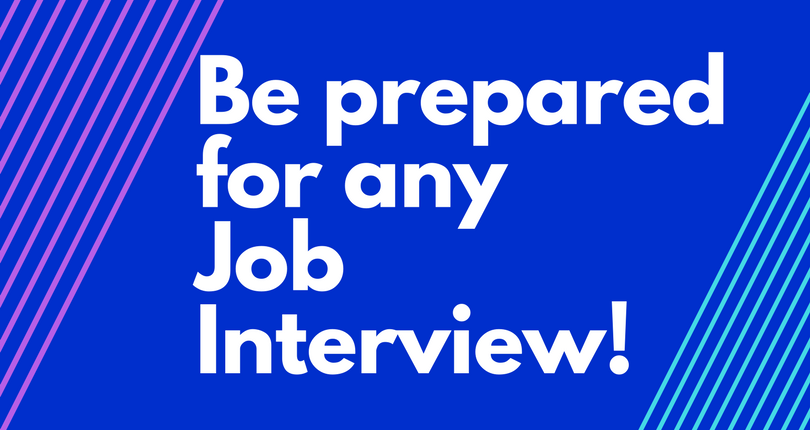Types of job interview
Firstly, it’s important to recognise that not all job interviews are the same. Although this may sound obvious, people are often taken aback when faced with an interview style which they are not expecting. Therefore, being aware of the different types of interview can help you get ahead of the game. Below we will outline some of the most common interview formats.
Question scoring

Some employers will power through a list of preset questions, scoring you on each question so that they can compare you numerically to other candidates. In this format those with the highest scores will move onto the next stage of the process. This approach is relatively impersonal, and is often used by company’s in sectors which do not require communication as a key skill such as Accounting and IT. A quick google search will reveal some of the most common questions, with some tips on answering them.
Casual conversation
 Many employers are shifting towards a more casual approach to interviews. Unlike the question scoring format, casual interviews are often used by roles which require much more communication and interpersonal skills, such as those in marketing and PR. Casual interviews unsurprisingly, have a very casual feel to them. Although the interviewer may have a few topics the want to cover with you, they are much more open to going off topic. So don’t panic if you are half way in to your interview and you feel like they haven’t asked you a ‘proper question’. They just want to get to know you, to asses whether you will be a good fit for their company.
Many employers are shifting towards a more casual approach to interviews. Unlike the question scoring format, casual interviews are often used by roles which require much more communication and interpersonal skills, such as those in marketing and PR. Casual interviews unsurprisingly, have a very casual feel to them. Although the interviewer may have a few topics the want to cover with you, they are much more open to going off topic. So don’t panic if you are half way in to your interview and you feel like they haven’t asked you a ‘proper question’. They just want to get to know you, to asses whether you will be a good fit for their company.Group interviews

Increasingly companies are using group interviews. As the name suggests, these involve being interviewed with other candidates. These are usually carried out in small group of 4-6 people. Group interviews are often used for roles that require a high degree of skills such as teamwork, communication and debating. Interviewers are looking for the ways in which you can handle group conflicts in order to meet a greater goal. Although it is important to try and stand out in interviews, it is important that you do so in the right way. In group interviews, acting like you have all of the answers is only going to get you so far. Make sure you collaborate, and show how much of a team player you are.
Skills interview

Some technical roles which require individuals to have a very high degree of competence with a particular process. For instance, computer programmers and accountants may be required to prove their skills in a test. If you are attending a skills-based interview it is likely that you are aware of what you will be required to do, so make sure you practice!
Mixture/ application day

Of course it is not uncommon for company’s to use more than one of the methods when looking for their ideal candidate. This is common in application days (grad days) for graduate schemes. A mixture of interview styles is useful for finding the most well rounded candidates. For an in depth look at mixed interviews, make sure you keep up to date with the Occumi blog!

